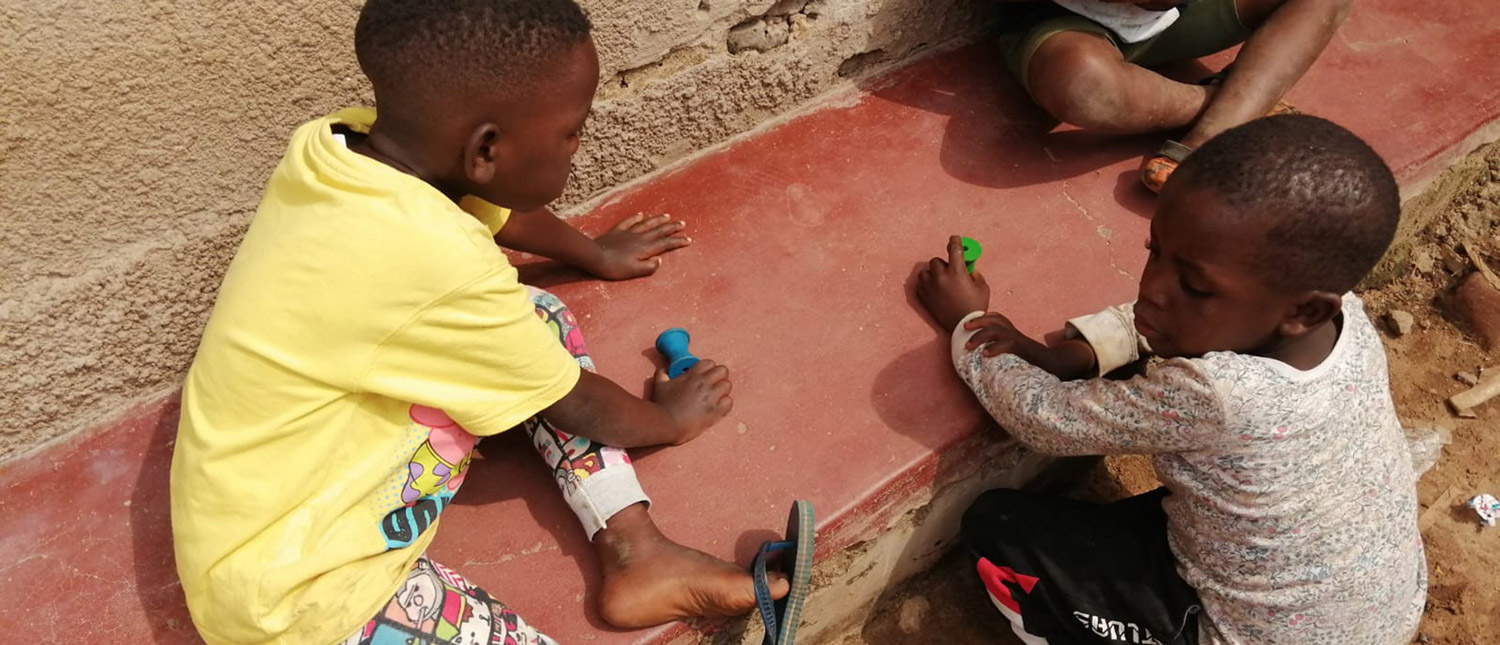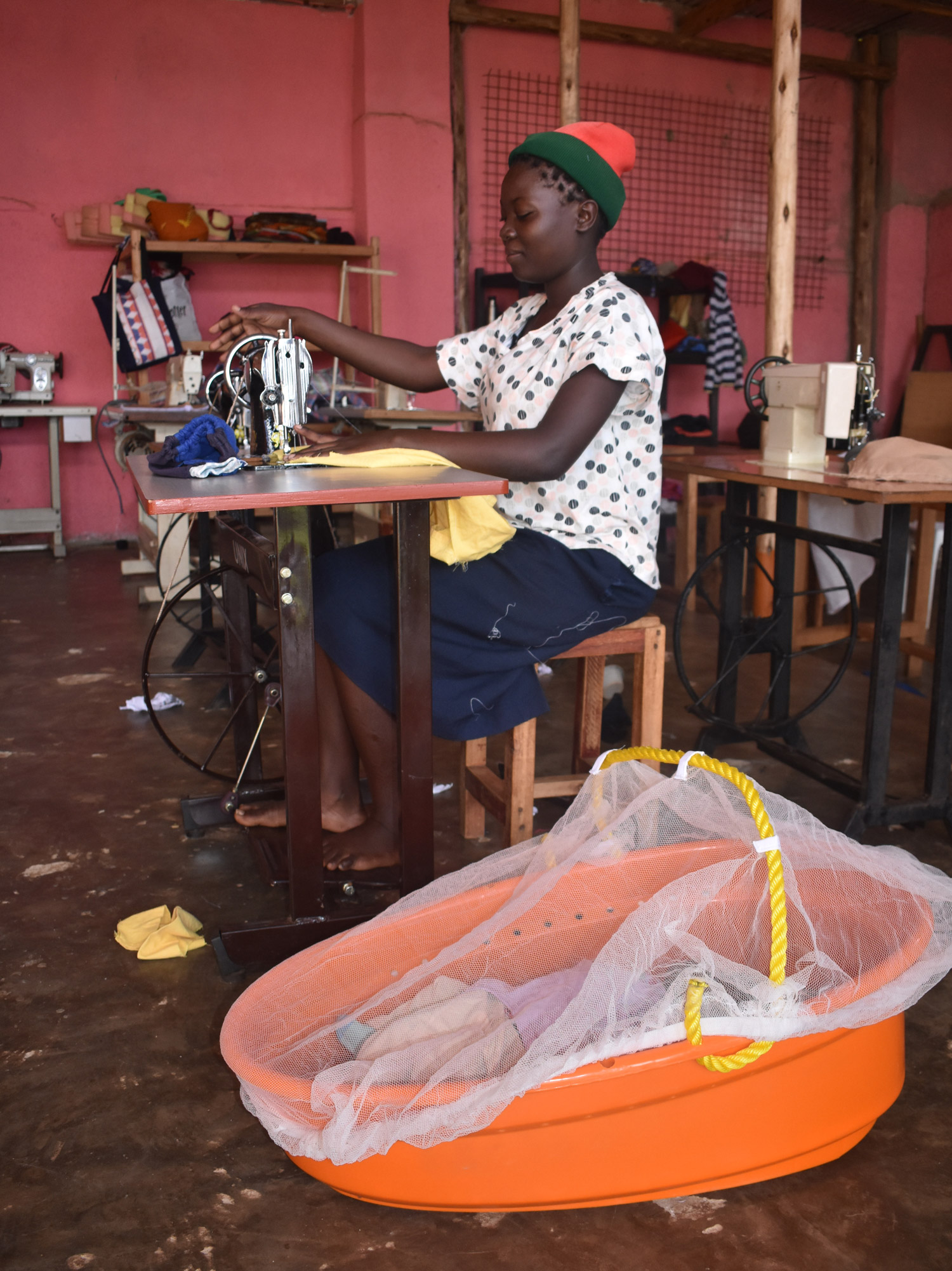Last year, we came across this amazing project called Kokono by De-LAB, to create reusable cradles for Ugandan kids that protect them from malaria and other health risks, but also thought out to generate local employment and empower mothers and families. With no second thoughts, we’ve decided to team up and support the initiative, and we’ve also donated some toys to bring some Grapat joy where it’s most needed.
Lucia Dal Negro, CEO and founder of the project, tells us a little bit more about it…
What does Kokono mean?
Kokono means “empty pumpkin” in a local tribe’s dialect (Acholi). We thought it was a perfect name as our crib is orange and it looks like an empty pumpkin 😊
Kokono is a one-of-a-kind project. It contributes to the issue of health but also touches gender empowerment and sustainable development. It is both a business and a charity. Can you tell us more about your vision and how you came up with the idea?
Sure! Kokono was born out of my field studies in Development Countries, where travelling on the field I noticed how there is little available for childcare, which is not just drugs or treatments. Mothers, fathers and babies are in need of affordable shelters for protecting the most vulnerable infants from threats due to extreme poverty: malaria, accidental hits in off-grid villages, animal attacks, suffocation due to co-sleeping. So, I went to Uganda and, thanks our local partners, we organized a product co-design tour engaging almost 200 people asking them: how would you like the perfect crib to be? Later we designed the business model, making 100% of KOKONO “Made in Uganda” and giving the distribution in the hands of women, who can use this as an extra income-generation activity. Locally KOKONO is sold at a very affordable price and back in Europe it is “adoptable” by firms that are willing to sponsor the manufacturing of some cribs directly where they are needed….with no intermediaries in between.
What have been the biggest challenges you found along the way and how have you overcome them?
Oh well… so many! We started on January 2020 and after few weeks the whole world was in lockdown. We lost our contacts there, then raw materials prices went extremely high and delivery times totally uncertain. We didn’t give up and kept on working on KOKONO prototype here in Italy. Then we got the mold delivered at our manufacturer’s facilities in Uganda and we kicked-off the operations. Initially it was very hard, as the price identified before the pandemic, was just unaffordable after 4 months… people got very poor after the lockdown and we had to review the entire costs’ structure again. More recently, we are struggling with logistics: we have good buyers in Malawi, but transports costs are just too expensive and KOKONO becomes not worth the effort anymore. In this case we are trying to pool the buyers to make just one shipment. Oh yes, and then now there is Ebola in some Ugandan districts, which apparently is under control. Overall, there will always be obstacles in doing something new, but fairly, in Africa… but if you need to make a difference, then this is the cost… better being used at sleeping few hours per day 😊
The project launched earlier this year. How is it going now, what are the future prospects?
It’s going well. We started on March 2022 and so far, we sold half of the production, plus we donated those sponsored by Grapat and by a crowdfunding campaign we successfully ran in May. We hope in these last 2 months of 2022 to finish off the first bulk and then advance with the next production batch, which will be bigger. At a product level we are improving the initial version …so soon the next ones will be already “Kokono version 2”. On the long ran my idea is to partner up with childcare and toys’ companies to expand our product and create partnerships for expanding special toy’s markets through KOKONO humanitarian impacts. I would like to design new toys for local needs… Do you know any? 😊
What is your relationship with Africa and especially, Uganda?
I have to be honest: I was scared of working in Africa. I was used at working and studying in different needy areas, like the Balkans or South America but I had no previous experiences there. What convinced me was the huge amount of young people that makes the local “social fabric”: communities are super young and this means that they are excited to test new things. We, as Italians, are sadly surrounded by old people and antiquities…which is fine, but is not very encouraging if you want to do new things. There I found the enthusiasm that was missing elsewhere. Concerning Uganda, even if it’s my fourth year travelling there twice a year, I still can’t say I know it: I pay great respect to such a huge country and my vision will always be biased as I am a European. Yet, I love the vibes you can only feel once you are there… their pragmatic view of life, and their ability to solve things even in extreme poor conditions. When I am far from Uganda, I miss that sense of belonging to a community…
There is a big stigma nowadays around the use of plastic, although it can actually be a sustainable material because of its durability, for example. How is your product sustainable?
We tried to do the best we could as a start-up, namely starting with biodegradable materials to produce the shell of the crib (which represents 90% of the total components). We worked in partnership with a US company producing a special polymer that, mixed with normal plastic, makes it biodegradable in few years compared to hundreds of years needed by mainstream plastic. We thought this was a real need if we wanted to be credible in addressing Sustainable Development. Hence KOKONO is not just saving lives but it’s respecting the environment.
What does childhood mean for you and what is your biggest wish for the world at these present times?
Childhood for me means innocence. The possibility to live and discover the small things in life without fear or loneliness. When I visited the very poor suburbs of Kawempe (Kampala) I was truly hit by seeing babies living surrounded by trash, plastics, rats, big aggressive birds and, of course, mosquitoes. This is something so easy to address, if only powerful people would like to. So, with the same innocence of a child, I am proud of myself for being in the process of trying, at least, to do something. Maybe my impact will never be big, but it doesn’t mean that we should not try making our world a better place for all.






 2022
2022  AUTOR: grapat
AUTOR: grapat



